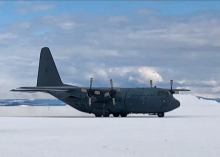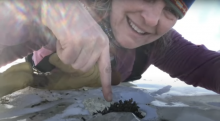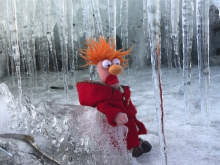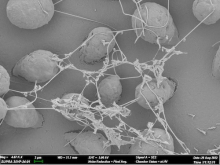Update
We are excited to share this expedition, supported by Miami University, with everyone! As this is a continuation of teacher Lucy Coleman's research experience that started with PolarTREC in 2014, we thought it fitting that she continues to share her experience here and with you. We hope you'll join us!
Archive Available
In case you missed it - there is an archive available of Lucy's live PolarConnect event from the Dry Valleys of Antarctica. Visit our PolarConnect Archives webpage to get the link.
What Are They Doing?
Microbial communities are more than just a scientific curiosity. Microbes represent the single largest source of evolutionary and biochemical diversity on the planet. They are the major agents for cycling carbon, nitrogen, phosphorus, and other elements through the ecosystem. Despite their importance in ecosystem function, microbes are still generally overlooked in food web models and nutrient cycles.
Moreover, microbes do not live in isolation: their growth and metabolism are influenced by complex interactions with other microorganisms. This project will focus on the ecology, activity, and roles of microbial communities in Antarctic Lake ecosystems.
Where Are They?
The team will characterize the genetic underpinnings of microbial interactions and the influence of environmental gradients (e.g. light, nutrients, oxygen, sulfur) and seasons (e.g. summer vs. winter) on microbial networks in Lake Fryxell and Lake Bonney in the Taylor Valley within the McMurdo Dry Valley region, Antarctica. 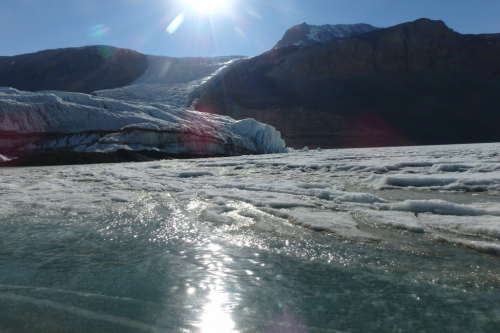
Latest Journals

I have been a Professor in the Department of Microbiology, Miami University, since 2007. I grew up in a small town located on Vancouver Island, British Columbia, Canada. I received a B.Sc. from the University of Victoria, British Columbia, in 1995 and a Ph.D. from the University of Western Ontario, Ontario, in 2000. My Ph.D. dissertation focused on the adaptation of the photosynthetic apparatus in a psychrophilic green alga isolated from an ice-covered lake in the McMurdo Dry Valleys, Antarctica. Following my Ph.D., I took a position as a postdoctoral fellow in the Department of Microbiology, University of Illinois Urbana-Champaign, where I worked on bacterial fatty acid synthase and β-oxidation pathways in the laboratory of John Cronan. I then worked as a research scientist in the laboratory of Thomas Hanson at the Delaware Biotechnology Institute, University of Delaware. My work at DBI focused on the photobiology of a thermophilic green sulfur bacterium. My current research program focuses on polar microbiology and specifically on the diversity and function of microbial eukaryotes residing in ice-covered Antarctic lakes. Research projects in my laboratory combine field studies in Antarctica with physiological studies on a large collection of polar photosynthetic and eukaryotic microorganisms.
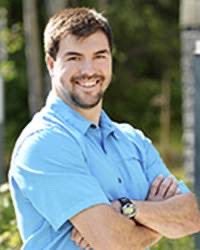
I am an Associate Professor in Biological Sciences at the University of Alaska Anchorage. I received a B.S. in Biology (2003) and M.S. in Microbiology (2007) at Idaho State University. My Masters Thesis was characterizing microbes that form biofilms at very acidic water. This research project cemented my love for extreme microbes. I then moved to Oregon State University for a Ph.D. in Oceanography (2011) where my dissertation focused on microbes found in marine sediments that have gas hydrates. I was then a C-DEBI Postdoctoral Fellow at Miami University and worked on hot springs in China. In 2015, I moved to Alaska to start my own research group in microbes that live in extreme environments. My group uses a variety of molecular, physiological, microscopic, and bioinformatic techniques to characterize microbes. We combine field studies from around Alaska and the world with laboratory and bioinformatic processing to understand how these microbes survive in harsh conditions.
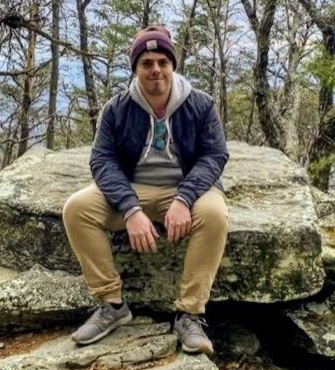
Bradley Krzysiak is a graduate student within the department of Microbiology at Miami University. He was born and raised in Southwest Florida where he attended Florida Gulf Coast University for his bachelors in Biology. After finishing his Bachelors degree he began attending Miami University within the lab of Dr. Rachael Morgan-Kiss, where he is currently working towards obtaining a doctorate degree. His research focuses on the microbial communities within Antarctic lakes, primarily studying the interactions between algae and bacteria, and the effects of environmental changes on those interactions.

Kodi was born in Hawaii, but was mesmerized by the beauty of these cold landscapes and eager to learn more about the organisms that survive these harsh environments. My research experience started during my undergrad at University of Alaska Anchorage investigating microbial communities found within proglacial environments.

Rochelle Pereira is a graduate student in the Department of Microbiology, Miami University, Oxford, Ohio, USA. She grew up in a small state called Goa in India. She received her B.Sc. degree, in the field of Microbiology, in 2018 at St. Xavier's College, Mapusa, Goa, India, and an M.Sc. degree in Microbiology, at Goa University, Goa, India in 2020. She joined Miami University in the Spring term 2021 and is currently pursuing her Ph.D. in Microbiology. Her Ph.D. dissertation is focused on understanding microbial interactions in Antarctic ice-covered Lakes in the McMurdo Dry Valley's, Antarctica.

Eckhardt Alexander Karsten is a 3rd year undergraduate studying Microbiology and Environmental Sciences at Miami University. He was born in Germany but grew up between Mexico and the United States. He has done work at the Pacific Northwest National Lab with the Soils Microbiomes team as well as running his own field project looking at E. coli antibiotic resistance in the waterways of Appalachia. He hopes to continue his research in Microbiomes sciences and eventually gain more experience in marine ecology.

